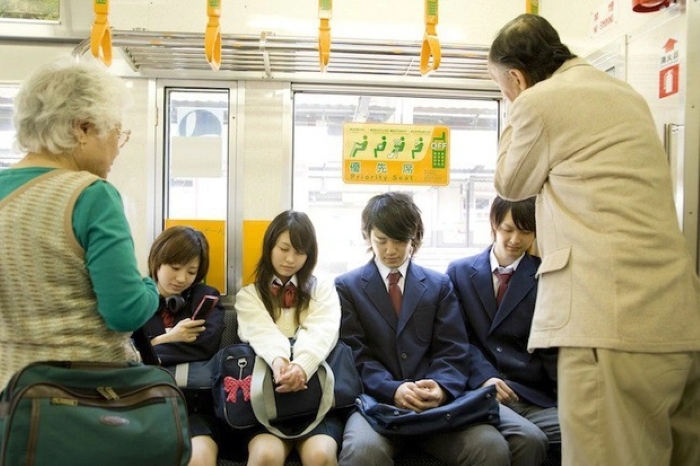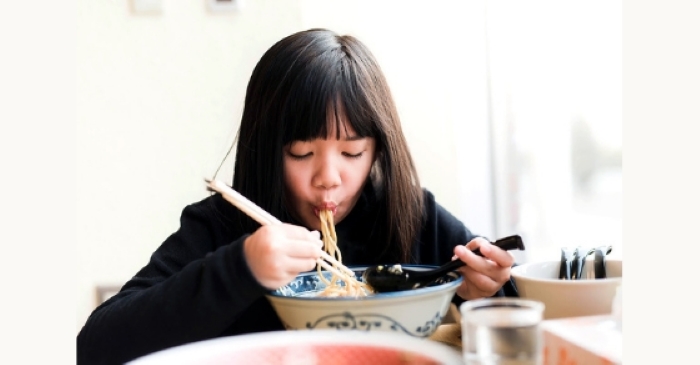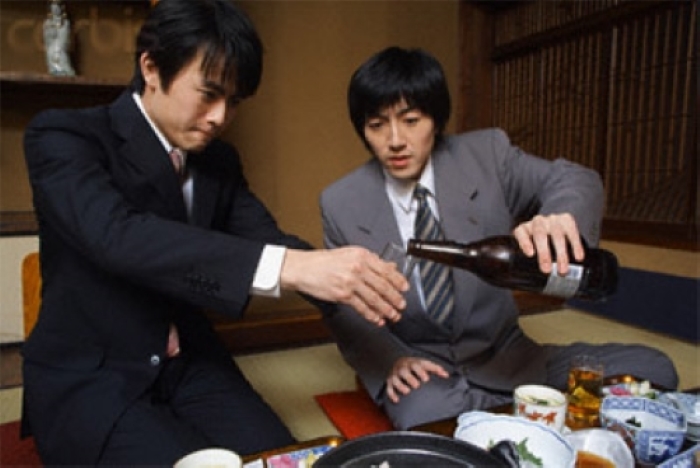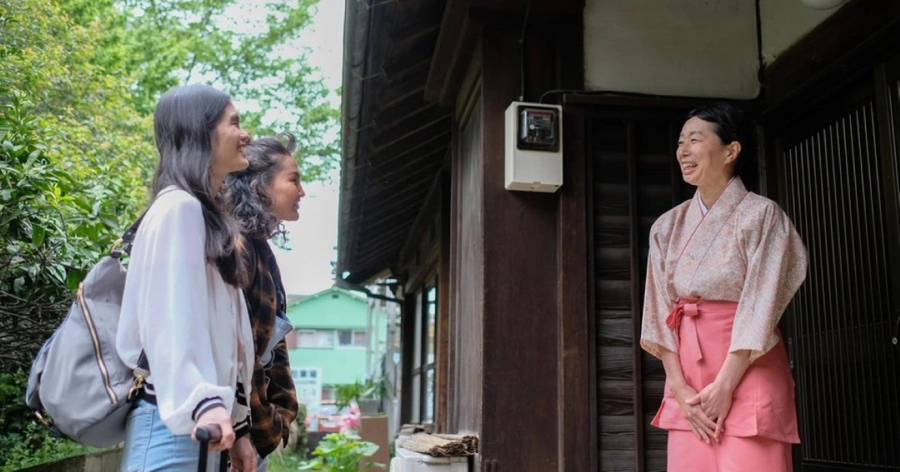1. In Japan, Napping is Praised
An interesting aspect of Japanese culture is the practice of napping on trains. Experienced commuters can time their naps so well that they wake up just as the train arrives at their destination, without the need for alarms.

In Japan, it’s common to see passengers sleeping on trains. (Illustrative image)
While in many cultures, napping in public may be considered rude or lazy, in Japan, it is praised and seen as a sign of diligence. The Japanese term for this phenomenon is “Inemuri,” which refers to a state of dozing where one appears to be asleep but is still somewhat conscious of their surroundings.
For example, during meetings, people may nap but will suddenly wake up when it’s their turn to speak.
2. No Seat Preference for the Elderly, Children, or Pregnant Women
In Japan, there is no special treatment when it comes to seating on public transportation. Age, pregnancy, or youth do not factor into seating preferences. While in many countries, including Vietnam, it is customary to give up your seat to the elderly or pregnant women as a sign of respect, in Japan, this is not the case.

Offering a seat to the elderly may be considered rude in Japan. (Illustrative image)
Japanese culture values equality, and offering a seat to someone is often seen as implying that they are weak or incapable. This is especially true for the elderly, as they highly value their independence and do not want to feel like a burden. Therefore, offering a seat may unintentionally cause offense.
3. Slurping Noodles is a Compliment
In many cultures, making loud noises while eating is considered impolite, especially for women. However, in Japan, slurping noodles is not only acceptable but is seen as a compliment to the chef.

Slurping noodles is considered a compliment to the chef in Japan. (Illustrative image)
The louder the slurping, the more the diner is expressing their enjoyment of the meal. So, don’t be shy to slurp your noodles enthusiastically when dining in Japan!
4. Pouring Your Own Drink is a Social No-No
In many countries, it is common to pour drinks for yourself and your companions. However, in Japan, pouring your own drink, especially when drinking alcohol, is considered rude and self-centered.

In Japan, pouring your own drink is considered impolite. (Illustrative image)
Instead, offer to pour drinks for your companions, and they will reciprocate. This custom is rooted in Japanese hospitality and the importance they place on sharing and enjoying experiences together.
5. Tipping is Not Expected or Encouraged
In many countries, tipping is a common practice to show appreciation for good service. However, in Japan, tipping is not expected or even welcomed.

Tipping is not a common practice in Japan. (Illustrative image)
In fact, you may find that your server will politely refuse or even chase after you to return the extra money. This is because, in Japanese culture, providing good service is seen as part of their duty, and they do not expect any additional monetary reward for doing their job well.
































